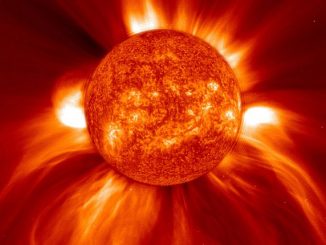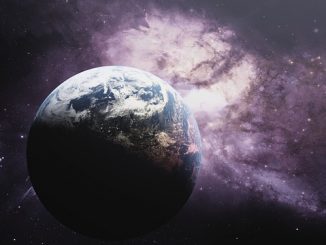
If you thought the world was weird, just wait until you hear about the ‘mirror world.’ Scientists believe that there may be a parallel universe affecting the gravity in our own universe. Three researchers published their recent findings in the journal Physical Review Letters, claiming that their theory is based on problems with the value of the Hubble Constant.
The Hubble Constant is the name given to the currently accepted value for the expansion rate of the universe. It is named after American astronomer Edwin Hubble, who was the first to measure the expansion rate of galaxies in 1929.
The value of the Hubble Constant is important for understanding the history and future of the universe. It can be used to calculate the age of the universe and to predict how it will continue to expand over time.
The currently accepted value for the Hubble Constant is about 70 kilometers per second per megaparsec. This means that for every 3.26 million light-years that you look away from Earth, galaxies appear to be moving away from us at 70 kilometers per second faster.
However, recent findings suggest that this constant may be a lot slower than initially predicted. In fact, a SciTechDaily report on the Physical Review Letters study suggests that the discrepancy could be caused by a parallel universe that is currently inaccessible to us.
“This might provide a way to understand why there appears to be a discrepancy between different measurements of the Universe’s expansion rate,” researchers said in a statement about their findings.
While the idea of a parallel universe may sound far-fetched, it is worth noting that many of the world’s greatest scientists have long believed that our universe is just one small part of a much larger multiverse.
The idea is based on the “many worlds” interpretation of quantum mechanics, which suggests that every time a quantum event occurs, the universe splits into multiple universes, each with its own version of events.
In this view, our universe is just one of many, and there could be an infinite number of other universes out there, each with its own laws of physics.
The researchers say that if the universe is somehow exploiting what we know about its physics and symmetry- there could be a mirror universe very similar to ours but invisible to us, except for its gravitational effects. This is because light would travel in the opposite direction in this universe, so we would never be able to see it. However, the gravity of this universe would still affect us, and we would be able to detect it through its effects on our world.
“This might seem crazy at face value, but such mirror worlds have a large physics literature,” one of the co-authors of the study said in the statement. “Our work allows us to link, for the first time, this large literature to an important problem in cosmology.”
As mentioned, the idea of a mirror universe is not new, and it has been proposed before as a way to explain some of the strange properties of our universe, such as the fact that time seems to flow in only one direction. However, this is the first time that it has been proposed as a way to explain the existence of invisible universes.
It goes without saying that the discovery of such a potential phenomenon would be a major breakthrough in our understanding of the cosmos. It would also have profound implications for our own place in the universe.
So far, there’s no evidence that such a mirror universe exists and the physicists say that their idea is just a theory. But the fact that it’s a possibility, however remote, is something that scientists will continue to explore.
Disclaimer: This page contains affiliate links. If you choose to make a purchase after clicking a link, we may receive a commission at no additional cost to you. Thank you for your support!




Leave a Reply